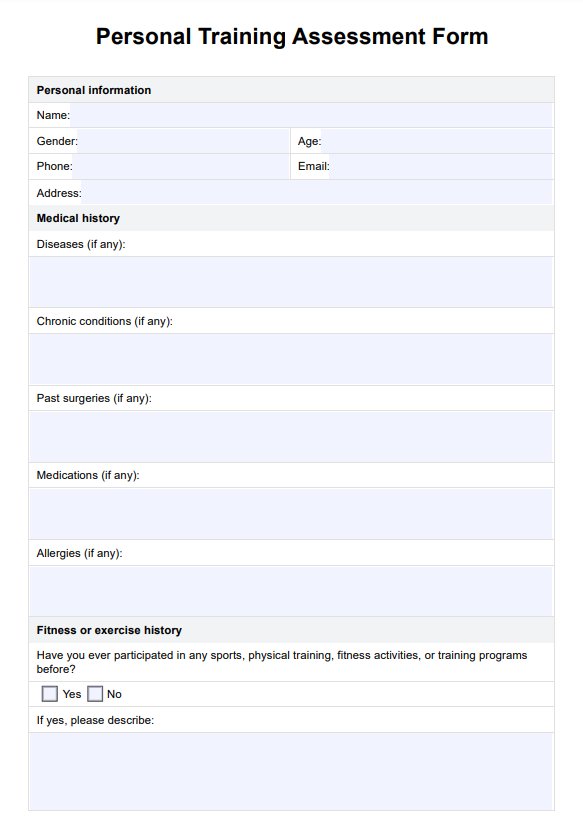Personal trainers, fitness coaches, and health professionals, with or without a fitness business, can use these free personal trainer forms to assess and plan individualized training programs.

Personal Training Assessment Forms
Explore the Personal Training Assessment Form, an essential tool for trainers to evaluate fitness levels and customize workouts. Download a free PDF today.
Use Template
Personal Training Assessment Forms Template
Commonly asked questions
They are used at the beginning of the training relationship, after an injury, or periodically to assess progress.
These forms are filled out through collaboration between the trainer and client, encompassing personal information, fitness assessments, goals, and consent.
EHR and practice management software
Get started for free
*No credit card required
Free
$0/usd
Unlimited clients
Telehealth
1GB of storage
Client portal text
Automated billing and online payments











